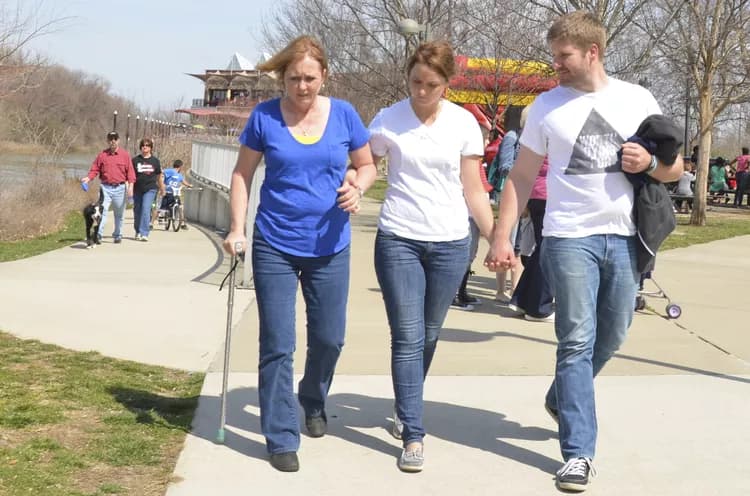
People With Dementia Exposed To Low Quality Of Life Through Lack Of Activity
People with dementia exposed to low quality of life through lack of activity.
Quality of life for people with dementia living in long-term care is often negatively impacted due to low levels of activity participation.
Furthermore, staff and families remain pessimistic about the abilities of the person with dementia to be engaged.
These are among the findings of a large-scale national study on the quality of life of people with dementia in residential aged care undertaken by the Dementia Collaborative Research Centre and Griffith University.
The study will be presented at this week's 11th Gold Coast Health and Medical Research Conference (Dec 4 and 5) by Professor Wendy Moyle from Griffith's Menzies Health Institute Queensland.
Using 53 residential aged care facilities across Australia, the study measured the participation levels across 15 leisure activities for residents with dementia (five items indoors and 10 items outdoors). For the 191 residents who were able to rate their own activity, the average score was 11.4 out of 30, with 0 being the lowest participation rate and 30 being the highest.
Among the 435 staff members surveyed in the study, the average score was 9.6, so lower than the people with dementia who self-reported on activities.
Families were found to be the most pessimistic regarding the degree to which they believed their family member engaged in leisure activities, with an average score of 7.
The study also tested the levels of cognitive impairment (brain function) and found that this was not related to the resident's assessment of their activity participation.
"It is particularly interesting that cognitive impairment was not found to be related to the residents' activity score whereas staff and family members' rating of a resident's activity level was highly negatively related to their cognitive impairment, such that those with more severe impairment were seen as having lower activity levels," says Professor Moyle.
"There appears to be a wrongly held assumption by staff and family that people with severe or late stage dementia are not capable of leisure activity or that they do not require the stimulation of activities.
"However we can see that although these people see themselves as having low ability, they have the capacity for a lot more.
"We already know that activity is really important and just because people with dementia may be cognitively impaired, it doesn't mean that they should miss out on engagement in an activity. Missing out in this way can result in not only further lowering cognitive ability, but also the potential for there being an unmet need in the person. This may be exhibited as behavioural and psychological symptoms of dementia such as agitation and wandering which can also result in an increased need for medication."
All three groups within the study rated those who they saw as more depressed, as having lower activity levels.
"When we looked at the resident's self-report, for example, the more they rated themselves as depressed, the lower they rated their own overall activity level. Among staff the difference was particularly large; they rated those with no depression with an average score of 10.9 versus a score of 6.4 for those they saw as being severely depressed.
"Maintaining quality of life for people with dementia living in long-term care is important, as there is no cure for this prevalent condition," says Professor Moyle. "When people with dementia go into long-term care, there is a belief that they will be more engaged in activities and will experience an improved quality of life. This unfortunately is not always the case.
"Given that leisure activities are proven to be related to the overall quality of life of this group, then there needs to be a concerted look at how this can be improved."
Professor Moyle suggests that higher staff to resident ratios are required in care homes, with the potential for integrating increased numbers of volunteers to provide more leisure activities within the care setting.
The above post is a redistributed news release provided by the Griffith University. Note: Materials may be edited for content and length.
Disclaimer: DoveMed is not responsible for the adapted accuracy of news releases posted to DoveMed by contributing universities and institutions.
Related Articles
Test Your Knowledge
Asked by users
Related Centers
Related Specialties
Related Physicians
Related Procedures
Related Resources
Join DoveHubs
and connect with fellow professionals

0 Comments
Please log in to post a comment.